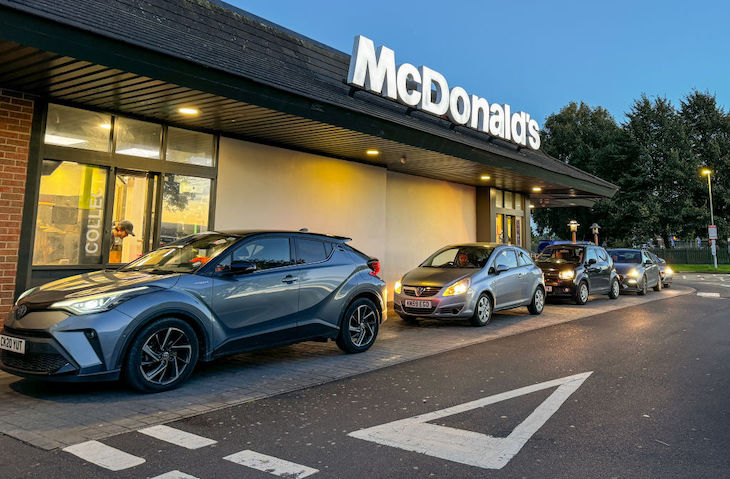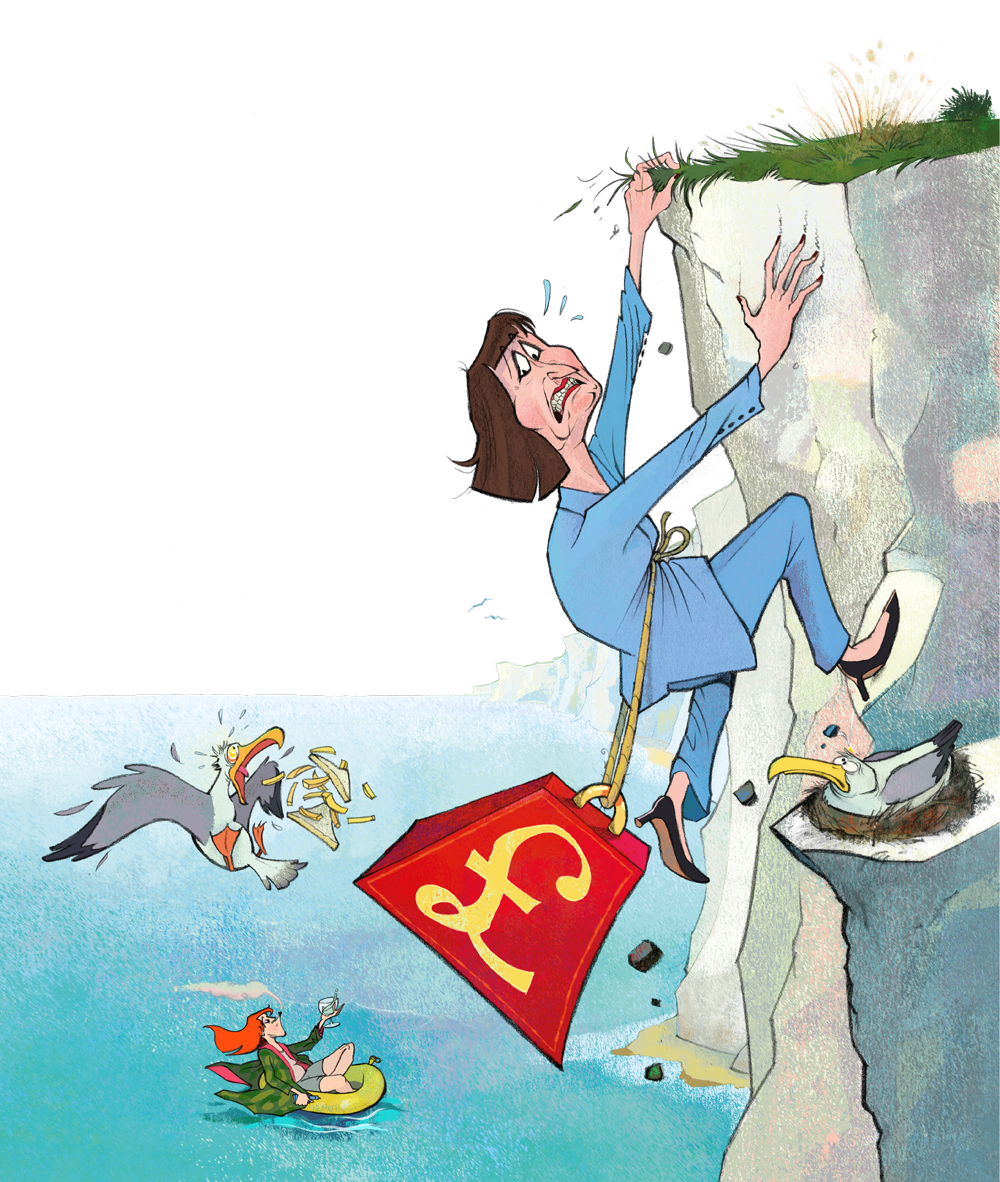Britain has received many things from America that we have little reason to be grateful for: Black Lives Matter, Instagram, the word ‘gotten’ – and the brief and unlovely period that Meghan Markle was a resident of this country. Yet one of the most enduring American imports is something that we no longer much notice: the drive-through – or ‘drive-thru’ – restaurant.
The all-American tradition of stuffing yourself with burgers and fries while sitting in the comfort of your car is here to stay. Thanks, America
There are now over 2,600 drive-thrus in Britain. A good number, of course, are McDonald’s – 1080, to be exact – but such is the growing allure of the drive-thru that others are getting in on the act – not least my beloved Greggs, which has 50 such outlets. As a result, the rent for a drive-thru has soared to almost double that of a fast food outlet in some shopping centres or retail parks.
In just a few decades, the drive-thru has taken over Britain.
The first drive-thru establishment in our country – a McDonald’s, naturally – opened in Fallowfield, Manchester in 1986. As someone who grew up with the Golden Arches representing an exciting, perpetually tempting opportunity, I remember pestering my parents to let me visit one as soon as it opened in Bristol, which it duly did in the early Nineties. I have a vague recollection that the excitement of eating a Quarter Pounder and fries and drink a milkshake in the back of the family car was offset by the slightly stale lingering smell of the deep-fat fryer and the depressing sensation, a week or two later, of finding a stray chip somewhere beneath the driver’s seat.
On balance, I preferred ‘eating in’, but the novelty has persisted. It seems that I am not alone. There is, admittedly, something rather wonderful about giving your order to an anonymous server via a speakerphone, driving the car to the next checkpoint and then having your meal handed to you, removing virtually all need for human contact. That appeal has grown, rather than diminished, over the past three decades.
It isn’t hard to see why, especially for families. There is something quintessentially British about a car’s driver, traditionally ‘dad’, being harassed and pestered by their hungry family and eventually seeking solace in finding the swiftest and most time-efficient means of feeding them.
The drive-thru today is fast food at its most sophisticated, not least because the old methods of shouting your order into a metal box have long been superseded by app tracking and GPS location details. Theoretically, you could begin to feel hungry five miles away from your nearest drive-thru and have your order paid for and waiting for you to collect by the time you arrive. Just as Deliveroo has taken away the difficulty and inconvenience of shopping and cooking in favour of swift home delivery, so the sophistication of the twenty-first century drive-thru is a wonder to behold.
But I wonder if the rise of the drive-thru is really something to celebrate. Covid dealt a near-existential threat to the service industry, and it has barely recovered outside the big cities and tourist centres. One of its least desirable byproducts is the rise in dehumanised, no-contact interactions with those who serve us our meals, which, to this day, are often simply dumped in a bag or box outside our homes. The continued popularity of the drive-thru is only really a motorised version of this dehumanisation.
Few of us would seriously believe that a visit to McDonald’s – especially these days – is an opportunity to exchange witticisms with a friendly staff member, not least because the whole process is largely technology-based in store anyway. But visiting a physical establishment still offers the remnant of the personal touch, to say nothing of being able to eat off a table and sit on a chair. But a growing number of Brits seem to prefer sitting in their cars instead. Doing so is undeniably convenient. But is it truly desirable for society? I’m not convinced.
The all-American tradition of stuffing yourself with burgers and fries while sitting in the comfort of your car is here to stay. Thanks, America.







Comments